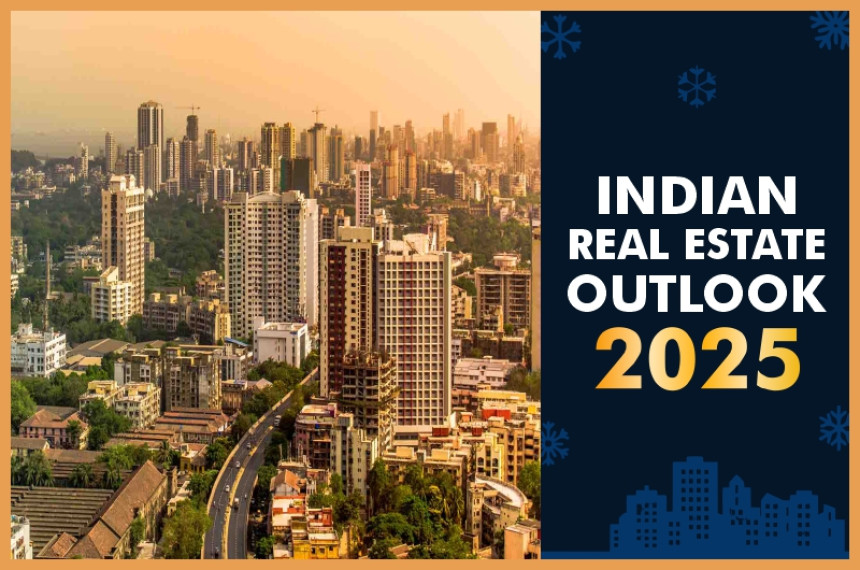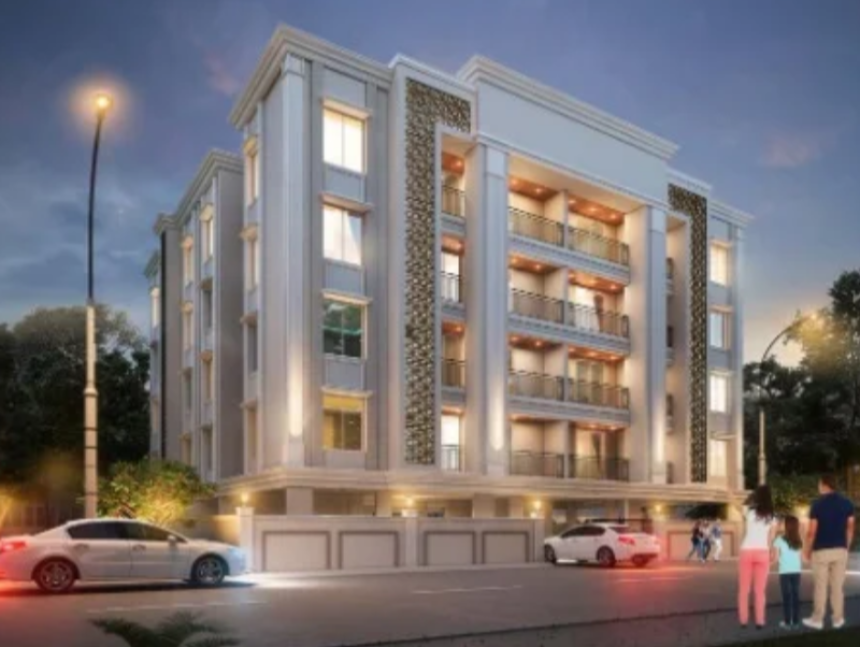
Indian Real Estate Market Outlook 2025: Trends, Risks, and Opportunities
The Indian real estate sector is entering 2025 with renewed momentum, driven by strong consumer demand, infrastructure-led growth, and digital transformation. But while the market shows promising signs, it's also navigating a complex landscape of regulatory shifts, global uncertainties, and evolving buyer expectations. This blog breaks down the key trends, emerging risks, and investment opportunities that will shape the Indian real estate market in 2025.
Key Trends Shaping the Market in 2025
1. Tier 2 and Tier 3 Cities Take Center Stage
Urban migration patterns and hybrid work culture have fueled demand in cities like Indore, Lucknow, Bhubaneswar, Coimbatore, and Jaipur. These cities are now attracting both end-users and investors due to lower costs, improving infrastructure, and rising job opportunities.
2. Plotted Developments and Gated Communities Surge
Post-pandemic preferences for open spaces, privacy, and lifestyle amenities have boosted the popularity of plotted developments and low-rise gated communities, particularly in the outskirts of metros and fast-growing towns.
3. Commercial Real Estate Is Bouncing Back
Despite the remote work trend, office leasing in Grade A spaces is witnessing a rebound, particularly in Bengaluru, Hyderabad, and Pune. Co-working and hybrid office models are reshaping the demand profile.
4. PropTech is Disrupting Traditional Real Estate
From virtual property tours and blockchain-based transactions to AI-driven property management, technology is becoming integral to real estate transactions and operations.
5. Affordable Housing Remains a Priority
Government policies like PMAY (Pradhan Mantri Awas Yojana), tax incentives, and favorable home loan rates are continuing to drive demand in the affordable and mid-income housing segments.
⚠️ Risks and Challenges to Watch
1. Rising Interest Rates and Inflation
With the Reserve Bank of India cautiously adjusting rates to manage inflation, home loan EMIs may rise, affecting affordability—especially in the lower and middle-income segments.
2. Overvaluation in Select Micro-Markets
Rapid price appreciation in some parts of Mumbai, Hyderabad, and Bengaluru could lead to localized bubbles. Investors should watch for unsustainable pricing and speculative activity.
3. Construction Delays and Regulatory Hurdles
While RERA has improved transparency, delays in project approvals, land acquisition disputes, and legal bottlenecks continue to plague several developments, especially in emerging cities.
4. Uneven RERA Implementation
State-wise differences in RERA enforcement lead to inconsistent buyer protection, posing a risk for uninformed investors.
💡 Investment Opportunities in 2025
✅ Logistics and Warehousing
The e-commerce boom, coupled with the growth of organized retail and manufacturing, is driving demand for logistics parks and warehousing facilities, especially in NCR, Pune, Nagpur, and Chennai.
✅ Rental Housing and Co-Living Spaces
In education hubs and urban centers, there’s growing demand for co-living and rental housing—offering strong ROI and asset-light business models for developers and investors.
✅ Green and Sustainable Real Estate
Eco-conscious buyers and global ESG standards are pushing developers to adopt green building certifications and sustainable design. This is opening up a premium market for energy-efficient homes and commercial buildings.
✅ Smart City Projects
Government-backed Smart Cities continue to attract infrastructure funding and private real estate investments. Locations like Bhopal, Surat, and Vishakhapatnam are emerging as high-growth zones.
🔍 Final Thoughts: A Market in Evolution
The Indian real estate market in 2025 is dynamic and full of possibilities. While short-term challenges exist—ranging from cost inflation to policy inconsistencies—the long-term fundamentals remain strong. Urbanization, infrastructure development, digital transformation, and changing demographics will continue to drive demand.
For homebuyers, this is a good time to lock in prices and financing before further rate hikes. For investors, the key lies in smart city selection, segment focus, and long-term vision.
India is not just building homes—it's building the future.
For more details, click here www.bharatpropertty.com





